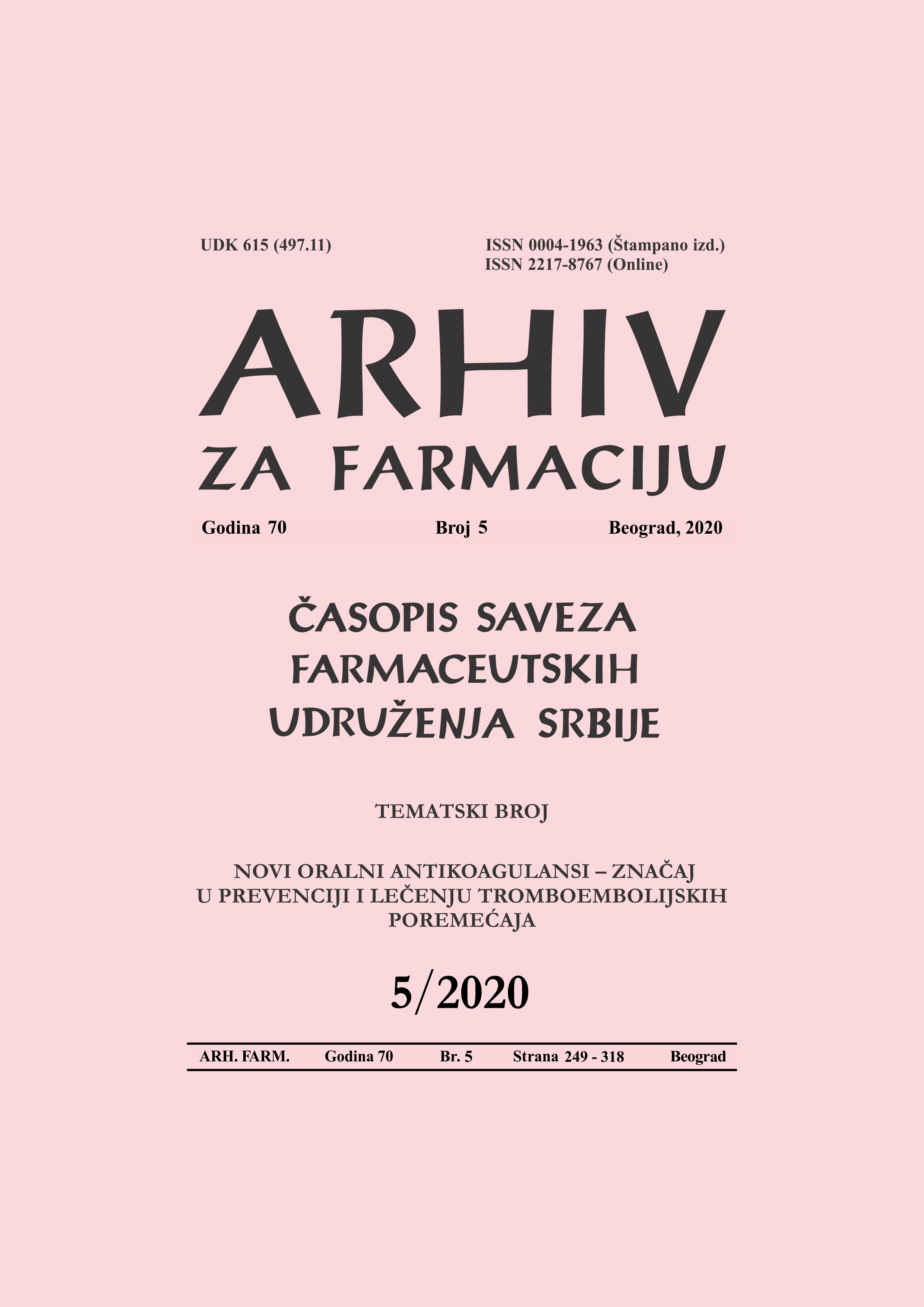
Word of the guest editor
Thromboembolic events are the leading cause of morbidity and mortality worldwide. As activation of the coagulation cascade is a fundamental process involved in ischemic stroke and systemic embolism in patients with atrial fibrillation, or in venous thromboembolism, inhibition of coagulation is a cornerstone of their prevention and treatment. Direct oral anticoagulants (DOACs: thrombin inhibitor dabigatran and Xa inhibitors rivaroxaban, apixaban, edoxaban, and betrixaban) were introduced about 10 years ago and brought a major reform in anticoagulation therapy. They have greatly overcome the shortcomings of until then the only available oral anticoagulants - vitamin K antagonists (VKAs: warfarin and acenocoumarol). Unlike warfarin, DOACs are characterized by a rapid onset of action, predictable pharmacokinetic profile, minimal drug/food interactions, less need for the effect monitoring, better treatment adherence, and lower intracerebral bleeding complications. As a consequence of the advantages and similar efficacy, DOACs are now replacing VKAs as well as parenteral anticoagulants (low molecular weight heparin, LMWH, and others) in many of their indications. This thematic issue of Archives of Pharmacy deals with DOACs by means of their pharmacologic/pharmacokinetic characteristics, efficacy, and safety, providing up-todate data from clinical studies and meta-analysis, for a range of indications. These include patients with stroke and non-valvular atrial fibrillation, patients with increased risk of or with established venous thromboembolism, and patients following acute coronary syndrome with elevated cardiac biomarkers in which rivaroxaban in combination with appropriate antiplatelet therapy can be used. Considerations for DOACs use in specific populations such as the elderly, patients with renal impairment, or those with certain comorbidities (eg. cancer) are also covered. Practical issues concerning situations when laboratory monitoring of DOAC’s effects are needed and situations in which the rapid reversal of their effects by specific antidotes is indicated are finally discussed. We hope that articles in this issue of the journal will help medical professionals, primarily pharmacists, physicians, and medical biochemists, in improving their knowledge of DOACs and solving the problems in anticoagulant treatment that they encounter in everyday clinical practice.
Guest editor
Maja Tomić, PhD, Professor
University of Belgrade - Faculty of Pharmacy
Department of Pharmacology
